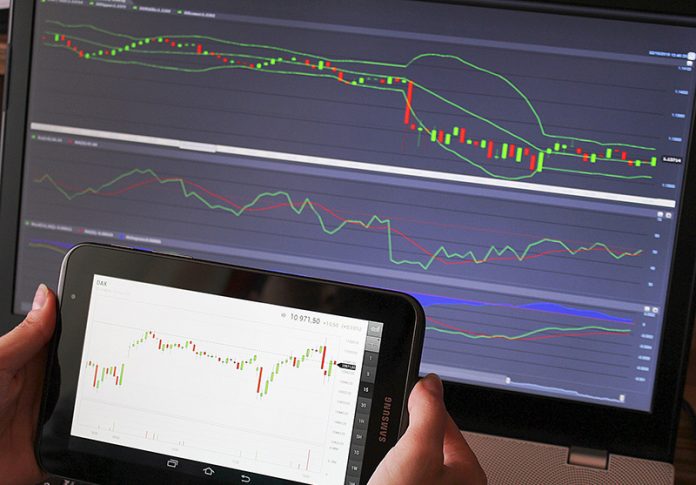All traders consider leverage at some point or the other in their career. While it brings miraculous solutions for some, it can also carry significant risks for others by augmenting the debt and making the total failure inevitable. Sounds intriguing? Follow this overview to get all that you need to know about “what is leverage in trading” and how to make it work for you.
Leverage: Definition
To begin with, let’s discuss what leverage means.
In simple words, leverage is a loan that a trader borrows from a broker in order to make their positions bigger. The size of the position is directly related to the profits that one can make from each trade.
For example, a standard lot of $100,000 will make it possible to earn $10 per pip. You can also choose a smaller size and earn $1 per $10,000 lot or $0.1 per $1,000.
It makes economic sense to go for larger lots and increase the gains, but it is equally important to remember two things:
- The trader does not become an owner of the borrowed funds even after the process is complete.
- Each broker will offer you different leverage, and therefore, it is important to choose a trustworthy provider.
Usually, the best you can get is a leverage formula of 1:1,000. It means that your investment sum can be multiplied by 1,000. The smallest leverage available on the market these days is 1:5. In addition, the broker’s company benefits from leverage by asking you for a commission for every trade. The commission respectively depends on the broker you’re dealing with.
Example of Using Leverage
Let’s illustrate the profits that you can make with leverage using an example. Sara is an experienced trader that entered a deal with 20,000, and she got 2,000. With basic leverage of one-to-one, she won’t make more than a 1% gain. Let’s imagine she found a broker that offered her a one to one hundred deal. How much will she increase the gains? The answer is 100%.
Because borrowing more in leverage is so tempting, traders forget the associated risks that often come with it. For example, Denis is less experienced than Sara, but he followed her example and also borrowed from a broker. He went for the simplest term of 1% leverage, invested $300,000, and then lost the trade. In this case, his total loss is $3,000. However, if the leverage formula he went for was higher, say one to one hundred, then he would have lost 100% of his funds.
The general advice in leverage is to find a formula that will be in the so-called golden middle. That way, you will be able to increase your profits if a deal turns out to be a success and stay afloat if it is a failure.
Pros and Cons
The advantages of leverage:
- Influx of funds
- An opportunity to increase your gains by up to 100%
- The speed and simplicity in the acquisition
The disadvantages of leverage:
- A significant increase in debt if the deal is lost. In the worst case, the trader can lose 100% of their funds
- Superficial decision-making. A trader who can borrow large sums of money from the broker is tempted to use the increased funding that does not belong to them to invest in strategies that are not well-thought.
- Brokers charge a commission or an interest rate. Some leverage can be made on worse terms than the other.
How to Make the Best Out of Using Leverage
You may be wondering, if leverage is a double-edged sword, how can you make it work in your favor? Luckily, there are some good recommendations at hand.
Choose the Right Broker
Cooperate with a reliable broker and find the terms that are suitable for you personally. The leverage ratio varies from company to company, as well as the general terms. Some brokers will encourage the trader to borrow more, but that will also increase the risks proportionally. A reliable broker will offer fair terms and a ratio that is a good and manageable balance between high returns if you win and adequate losses in case you don’t.
Money Management
Avoid 100% loss and know how much you can lose. Professional traders recommend the beginners always to consider what will happen if they lose and thus, never enter high leverage when they cannot afford to fail.
Remember to fix your profits. Consult with your broker about how you can fix your profits before the leading factors of the trade have changed.
Trust Your Strategy
Invest in building a trading strategy that works for you. Whether you get advice from your broker, an independent consultant, or you work on your trading strategy by yourself – never forget to stick to the plan and avoid making emotional decisions based on unverified information. Rumors and fake news have ruined more than one good trade.
When used wisely, leverage can work magic and increase profits each time. Use these recommendations to make the best decisions and keep your gains at maximum.
Disclaimer: This article contains sponsored marketing content. It is intended for promotional purposes and should not be considered as an endorsement or recommendation by our website. Readers are encouraged to conduct their own research and exercise their own judgment before making any decisions based on the information provided in this article.



























![“Does Everyone Hear Me OK?”: How to Lead Virtual Teams Effectively iStock-1438575049 (1) [Converted]](https://www.europeanbusinessreview.com/wp-content/uploads/2024/11/iStock-1438575049-1-Converted-100x70.jpg)




